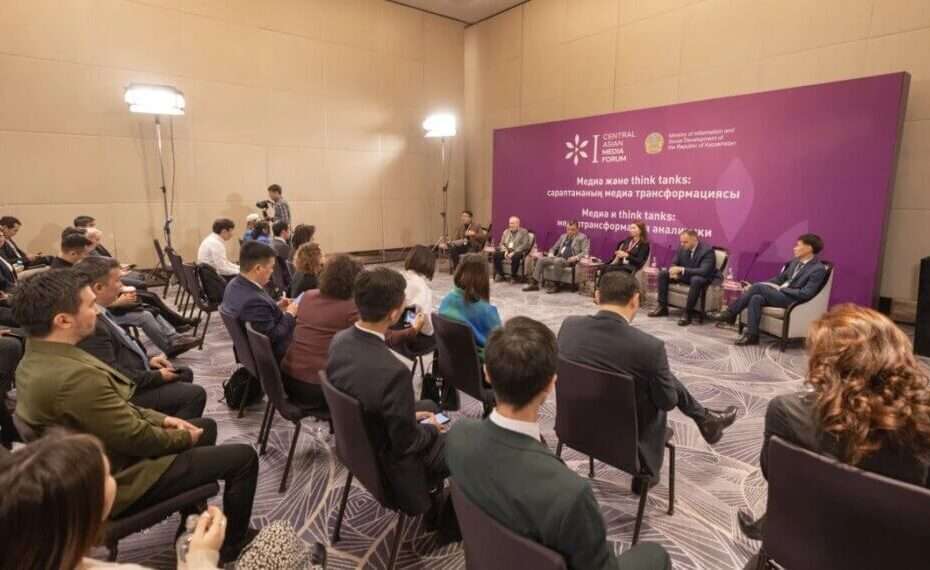On December 20-21, 2022 the First Central Asian Media Forum took place, which was organised by the Ministry of Information and Social Development of the Republic of Kazakhstan under the aegis of the Organization of Turkic States, International Turkic Academy, The Kazakhstan Institute for Strategic Studies under the President of the Republic of Kazakhstan, as well as other organisations and mass media.
Over the course of two days, renowned experts discussed topical media development issues and shared their observations and best practices. For the first time in the region, they discussed the measurement of regional identity, new media development, artificial intelligence technology in the industry, the future of the creative industries in Central Asia, the possibility of regional and global cooperation to ensure information security, fake news in a post-truth era, media literacy and the role of women in the media.
The round table on “Media and Think tanks: Media Transformation of Analytics” was attended by experts from KazISS. Iskander Akylbayev, KazISS’s chief expert, moderated the event. The speakers were Andrei Bystritskiy, Сhairman of the Board of the Foundation for Development and Support of the Valdai Discussion Club, Askar Umarov, Director of the Central Communications Service under the President of the Republic of Kazakhstan, Lyazzat Tanysbay, the Chairman of the Board of JSC «RTRK «KAZAKHSTAN», Evgeniy Kochetov, General director of the Media Damytý Qory corporate foundation, and Aidar Kurmashev, the Head of the International Research Department of KazISS.
During the round table, the idea that the transformation of the media is a reality and a pivotal trend in light of current geopolitical events was emphasized. New challenges and crises of our time dictate and set new attitudes for the media. Therefore, the role and responsibility of the media are growing today – the media are becoming the main sources of information perception. Media are not just information resources, they are a content factories. Therefore, think tanks with research resources, as well as media capable of generating large volumes of information and promoting various ideas among the public, should find ways to further cooperate in order to shape public opinion on a wide range of issues.


